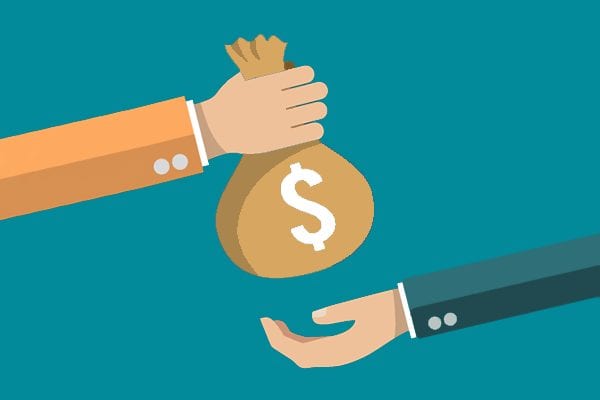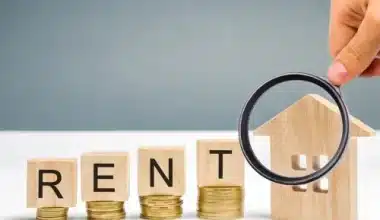Having your own home sounds like a brilliant idea, but the thought of taking out a mortgage seems like a life sentence. However, it ought not to be. You can actually pay off your mortgage in 5 years if you put in the required efforts. And, in this article, we’ve outlined the steps you can take to achieve that.
How To Pay Off Mortgage In 5 Years
The following steps will help you to pay off your mortgage in 5 years:
#1. Establish a specific goal.
It’s easy to say, “I want to pay off my mortgage loan in 5 years.” That’s fine, but selecting a precise date offers you something practical to aim for and look forward to.
Giving yourself a specific objective and a timetable will help you stay on track. If, like many people, you enjoy incremental accomplishments, having a breakdown of your repayment goals along the way (20% paid off, 50% paid off, or specific dollar targets to hit each year) can help you enjoy the feeling of accomplishment sooner than the five-year mark and may help keep you motivated and on track.
#2. Aim for a monthly mortgage payment that is substantially below your DTI limit.
Debt-to-income (DTI) is one way lenders assess your repayment potential. According to lender criteria, your total monthly debt payments (including your house payment) should be less than a particular amount. Your DTI ratio has no effect on your credit score or ability to obtain credit cards, but it is important when applying for a mortgage.
If you have a lot of other debt, your DTI may affect your ability to secure a mortgage as a first-time homebuyer because you’re regarded to be more likely to default. This is true even if you have otherwise good credit and a solid income.
Lenders determine your DTI by adding your monthly debt payments, such as student loans, auto payments, and credit card payments, to your new mortgage payment.
This figure is then divided by your monthly gross income (before taxes and deductions), yielding your DTI.
Utility bills, cell phone bills, and groceries are not considered when assessing your DTI.
According to mortgage loan studies, borrowers with higher DTIs are more likely to fail on their loans, so banks and other lenders assess your DTI number when considering you for a mortgage loan.
Since July 2017, lenders have regarded a DTI of up to 50% as acceptable for certain qualified purchasers utilizing conventional loans — but this does not mean you should take advantage of the entire 50%. This is especially true if you intend to pay off your mortgage before the end of the loan term. If you’re already spending half of your salary on debt, it’ll be more difficult to pay off your mortgage on time.
#3. Increase your earnings
You do not need to take on another full-time job to supplement your income in order to pay off your mortgage in 5 years.
With the gig economy increasing, you have a plethora of alternatives for earning a little extra money in your spare time.
You may work as a Lyft driver or a GrubHub delivery person. You could look for online freelance writing or social media work. The alternatives are plentiful and flexible, and just a few hours per week could result in a few hundred dollars extra per month to put towards your home.
You could also request a raise from your boss. A raise could be a reasonable option to enhance your salary depending on when your last raise was and your job performance since then.
#4. Keep Your Repayment Goals In Mind
Paying off a house that isn’t at the very top of your budget or pricing range will be much easier. The more you spend on a house, the more money you’ll need to come up with each month to pay it off. This makes expediting the repayment procedure more difficult.
Giving up an extra bedroom or some yard square footage to pay off your mortgage loan in 5 years may be worthwhile.
Consider some DIY upgrades if you don’t want to sacrifice space. A property that needs some TLC will cost less on the open market and will allow you to customize it to be even more ideally suited to your wishes and needs.
#5. Put down as much money as you can while purchasing
The larger your down payment, the lower your monthly mortgage payments will be, making it easier to repay your loan promptly.
If you can put down 25% or 40% (or more!) of the home’s purchase price upfront, your monthly payments will be lower, and it will be easier to make them all, as well as any extra payments you can afford.
However, saving ahead of time is preferable to depleting your emergency reserves, especially if your five-year repayment plan implies you won’t be able to replenish your savings until your mortgage is paid off.
#6. You can also use down payment help.
If you are a first-time homebuyer, there are unique programs available to assist you.
This assistance is typically provided through down payment matching programs, which will match up to 10% of your down payment, bringing you to 20% and allowing you to avoid paying mortgage insurance.
If you qualify for one of those programs, it makes little sense to put down 20% yourself; instead, put down 10% and save the rest for an emergency fund (which lenders will want to see), closing expenses, or a lump sum payment on the loan principal once you own the house.
According to a 2016 RealtyTrac research, down payment assistance programs save qualified homeowners more than $17,000 over the life of their loan. The average amount saved on the down payment was $5,965.
#7. Inquire About The Repayment Penalties Before Committing To A Loan
When looking for a loan, make sure to ask potential lenders about prepayment penalties before signing on the dotted line.
If you intend to pay off your mortgage early to save money on interest, the last thing you want to do is incur penalties.
They are not available from all lenders, but if you want to pay off your loan early, it is better not to pay your lender for the privilege!
#8. Get a 15-year loan term
A shorter-term will have a lower interest rate, and more principle payments will be more impactful as a result.
A 15-year loan term may feel a far away from your five-year payment plan but if there are no prepayment penalties, you may still pay it off in five years and benefit from the lower interest rate along the way.
#9. Refinance to a shorter-term
You can also obtain a 30-year mortgage and refinance it into a shorter-term after purchasing. This can help you save a significant amount of money, particularly if your current mortgage is fixed rate and interest rates are lower now than when you signed your original mortgage. However, keep in mind that you’ll have to pay closing expenses again if you refinance, so incorporate that into your payback strategy.
“Especially during times when interest rates have declined, refinancing has presented an opportunity for homeowners to lock in a lower interest rate and cut their monthly payment,” says Michael Shea, CFP®, EA with Applied Capital. He also mentions that if you could keep making the same (higher) monthly mortgage payment after refinancing, you would be able to pay off the mortgage sooner. “This does not impact their budget, but it does boost the amount they are contributing to their principal.”
#10. Refinance your mortgage
While some loans (FHA and VA loans, for example) and many lenders will not accept it, other conventional loans and lenders will.
Following a lump sum payment toward your loan principal balance, your lender may charge your payment schedule, perhaps resulting in a shorter loan term and paying less interest overall.
Most mortgage recasts result in a reduced monthly payment, but if you keep your payments the same as before, you’ll pay off your mortgage sooner.
Read Also:MORTGAGE STIMULUS: Good News For Prospective Homeowners
#11. Avoid incurring additional loans.
If you’re determined to pay off your mortgage as quickly as possible, you won’t have the financial resources to take on other loans. This entails keeping your existing vehicle as long as possible and not returning to school soon away.
Paying off medical debt can be financially exhausting, so make sure you have adequate health insurance before devoting a big portion of your disposable income to purchasing a home altogether.
#12. Pay off other bills and use the proceeds for your mortgage.
If you have other debts that you can pay off faster (especially credit cards with high-interest rates), pay them off and redirect the money from those payments to your mortgage payment.
Paying off your credit cards may hurt in the short term and require you to live on a strict budget for a while, but the long-term rewards of being free of both credit card and mortgage debt will feel fantastic.
#13. Establish a biweekly payment schedule.
Some lenders will allow you to create your payment schedule in this manner. You pay half of your mortgage every other week, for a total of one extra payment every year.
This is due to the fact that there are 52 weeks in a year, which equates to 26 half-payments or 13 full payments. That’s one more payment than you’d make on a monthly basis — and you probably won’t notice the difference in your day-to-day life, especially if you’re paid biweekly.
Kevin Bartlett, an agent with over six years of expertise in Estero, Florida, has worked with multiple clients who paid off their mortgages early, noting, “When folks want to pay off their mortgage early, they often make double payments, every-two-week installments.” As a result, they will receive an additional payout before the end of the year.”
#14. Make the most of your principal repayment efforts.
It will undoubtedly help if you can save money by cooking for yourself, carrying your lunch to work, and staycationing — and then apply all you save to your principal.
Don’t give up all fun in your life, but little sacrifices might yield a large payout when the money is put to your loan principal.
Clients of Bartlett who are actively paying off their mortgages frequently use this technique, as even a $100 extra payment twice a month makes a significant difference.
Many people add $100 per month to reduce the principal and interest, so they’re still obtaining an extra payment while still saving roughly $2,400 per year on their mortgage and interest.
#15. Make an extra house payment as often as possible.
Consider putting some of your bonus, birthday money, or other windfalls toward your loan principal. It may be tempting to indulge in a vacation or a new gadget, but lowering your loan principal will save you money and accelerate your path to full homeownership.
#16. Continue to communicate with your family in order to make adjustments.
Maintain each other’s motivation and focus, and evaluate how well your strategies are working.
Your payback process will go much more smoothly if everyone is still on board with the plan and any short-term sacrifices that may be required, such as foregoing pricier trips or having your children share a room or bathroom instead of having their own.
#17. Remind yourself of the reason you’re doing this.
Will you hold a fantastic celebration when it’s all over? Going on a luxurious trip to a beautiful beach? Take up an expensive pastime you’ve been meaning to try?
Whatever your reason is, make it a part of your mortgage payment process so you never forget your why.
Can you Pay off a 30 Year Loan in 5 Years?
Hundreds of thousands of dollars in interest can be avoided by paying off a mortgage early. You can eliminate a 30-year mortgage in as little as five to seven years, but only if you commit to a strict plan of action and budget. Unfortunately, not everyone can afford to do so.
How many Years does an Extra Mortgage Payment a Year Take off?
You’ll pay an extra month’s worth of rent next year. You could save yourself tens of thousands of dollars in interest and four to eight years off of your loan if you did this. The good news is that you can make an impression without spending so much.
What Happens if I pay 2 Extra Mortgage Payments a Year?
You can reduce the length of your mortgage by paying more principal each month. In addition to saving money over the life of the loan, the lower your balance gets, the fewer payments you’ll have to make overall.
Is it Smart to Pay off your House Early?
A mortgage that is paid off early releases that money for use in the present or in the future. If you decide to keep your mortgage, it is possible that you will no longer be able to deduct mortgage interest from your taxable income. However, as more of your payment goes toward principal with each instalment, your tax savings will decrease over time.
Is it Better to Overpay Mortgage Monthly or Lump Sum?
Interest costs can be reduced by paying off your mortgage in a single lump sum. The interest you owe on your mortgage will be paid off faster than if you made overpayments over several years.
What is the Best Way to Pay off your Mortgage?
The most effective strategy for eliminating your mortgage will vary from person to person, depending on their financial situation and long-term objectives. Make extra payments or even consider refinancing your mortgage if you want to cut down on interest costs and have the financial flexibility to do so.
Is it Worth being Mortgage Free?
Being free of a mortgage means more money in your pocket and no more interest payments. Paying off your mortgage early frees up a lot of cash that can be used for other purposes or saved for a rainy day.
In Conclusion,
Many homeowners can pay off their mortgage in 5 years or less if they plan properly. It may necessitate a reduction in spending or an increase in income, but it is typically possible. Understanding the numbers and devising a plan of action are the initial stages. If you still have questions and are unclear about how to proceed, scheduling a meeting with a financial counselor is a smart place to start.
Frequently Asked Questions
Can I pay off my mortgage in 5 years?
Yes, you can if you follow the steps in this article.
What happens if I make one extra mortgage payment a year?
If you make one extra mortgage payment a year, you will remove years off the term of your mortgage.
- MORTGAGE CREDIT SCORE: Minimum Credit Required To Buy A Home
- Secondary Mortgage Market: Step By Step Guide On How It Works
- MORTGAGE UNDERWRITING: Steps to the MU Process
- Form 1098 Mortgage: The Interest Statement
- PAY OFF MORTGAGE EARLY: When & How To Pay Off Mortgage Early
- RATE AND TERM OPTION: Explained






